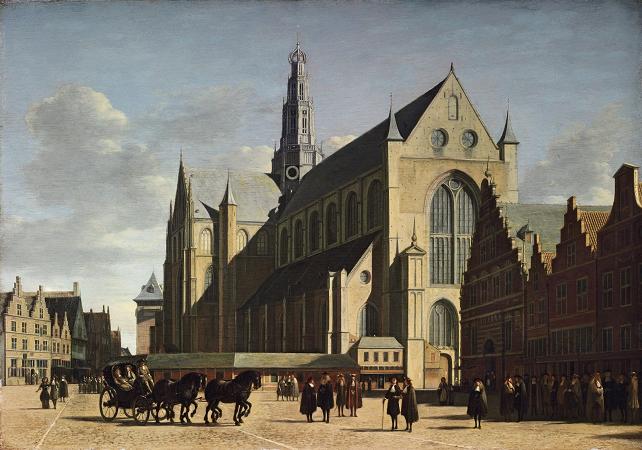Isaac Ouwater (1748 - 1793). Isaac Ouwater was a Dutch painter who specialized in cityscapes. Ouwater lived in Amsterdam all his life. He visited various other cities where he made sketches of cityscapes that he later elaborated in his studio. This is how his paintings, usually in small format, of cities such as Utrecht, Haarlem, The Hague, Delft, Edam and Hoorn were created. Ouwater worked in the tradition of Jan van der Heyden and Gerrit Berckheyde, pioneers in the genre that was emerging in the mid-17th century. Like Van der Heyden, he worked very accurately, both with regard to the locations depicted and with regard to the rendering of facades, even the joints of which are clearly shown. Deviating from Van der Heyden's work is his portrayal of people who enliven the work. The buildings depicted are usually bathed in sunlight. The most striking, although not the most characteristic, work from Ouwater's oeuvre is the painting The lottery office which is in the Rijksmuseum Amsterdam. It depicts a situation that arose on 25 October 1779 at the start of the sale of lottery tickets for the 66th Generality Lottery in a building in Kalverstraat. The building on the right was once occupied by Jacob van Ruisdael, the house on the left by Aert van der Neer. The work was produced for Jan de Groot, who at the time was the owner of the lottery office annex bookstore.
more...








